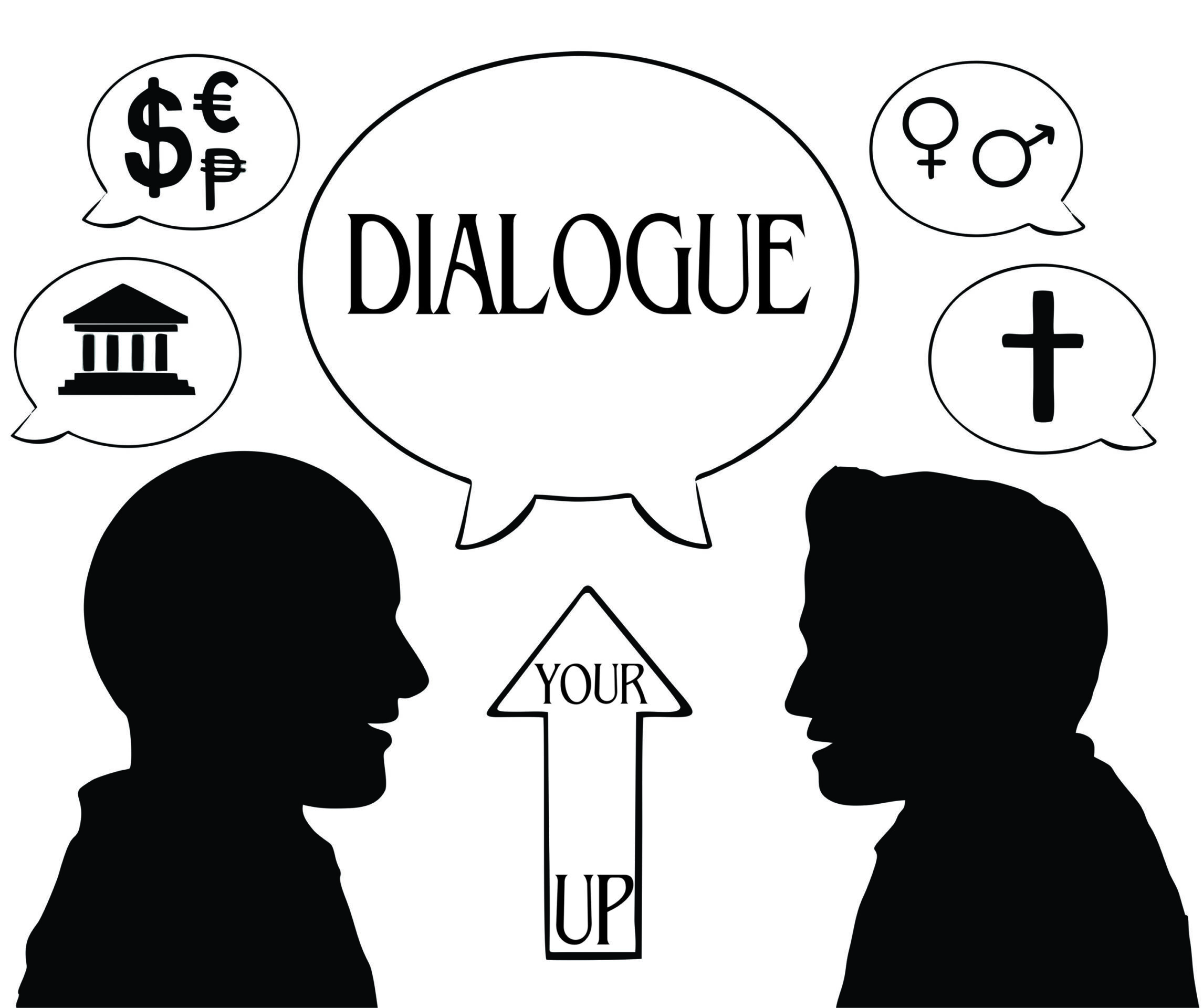In Episode 4 of the Up Your Dialogue podcast, “Agnostics, Atheists, and Christians”, I discussed the way of life for the “Pure Agnostic” with my co-host, L. A. Londy. I described the difference between believers and non-believers, using Christianity and Atheism as examples, as a kind of middle ground, but this is not to say that the middle ground is a neutral place. In general terms, an agnostic could be defined as anything or any space between definite belief in a higher power and certitude that said higher power cannot possibly exist.
The middle ground seems simple on the surface. Believe, disbelieve, or take the third route and admit that you don’t know. How hard can that be? Yet when we have a closer look at this “middle ground” area, we cannot really be satisfied with the act of balancing on some proverbial fence between the two camps lest we are taken for wishy-washy waifs, unconcerned about the origins of the universe, the nature of morality or the examination of consciousness.
To be more precise, I spoke then about the “Pure Agnostic” [starting around 45:50] as someone whose lack of a definite answer does not lead him or her to casually shrug his or her shoulders and walk away from the thorny problems raised by uncertainty about epistemology. Pure Agnosticism obliges that person to query religions and sciences, to explore both physics and metaphysics, or in other words to look.
This looking represents a compulsory journey, a journey that must be vigorously active until one of two outcomes is reached. Either one finds “god”, and naturally this must be the correct god as opposed to all the other wrong gods (a classification hardly apparent at the beginning of the road), or one must find what Baruch Spinoza and Albert Einstein called “the sum total of all the mathematical laws of the universe.” When either one of those understandings is reached, and perhaps the destinations are even identical, a checkmark can safely be given to teleology and meaning. One may presumably rest safe and sound at that point, but until it happens the search must go on.
This much was more or less covered in the podcast. What I didn’t tell the listeners during that recording was why I am an existentialist. Other questions immediately arise from this proclamation, such as what existentialism means or why anyone would want to be one or, more precisely, why a Pure Agnostic has to be one. Part of the idea of the Up Your Dialogue Blog is to create a space for the podcast creators to branch off chutes of discussion from the main tree of the original recorded content.
The right first question must be to determine what existentialism even means, and I do not suppose myself alone in struggling to pin down a definition. Jean Paul Sartre and Albert Camus struggled with it – and with each other –, and they were the twentieth-century vanguards of the idea. How could I possibly be something if philosophers such as these don’t even know what that something is? Nevertheless, let’s give it a try . . .
A man, by which I mean any sentient being (regardless of gender or species), finds himself at some point confronted by the Void. The Void is the confrontation with mortality, a place from which there can be no salvation. This man knows he will be alone, unarmed and 100% helpless as he dies. He is not going to die the instant he first encounters the Void, of course, but he discovers the recognition that it will always be there waiting for him.
The Void is death, but not only that. It is a place of no meaning. Whatever he meant, to himself or anyone else, whatever anything or anyone meant to him, all these meanings are lost. His invented gods, his beggings for mercy, his mother . . . none will save him.
How does a man handle this awareness, this self- and world-altering crisis? How can he go back to his former life unaffected? The Void touches, or taints, everything afterwards and always. There is no permanent escape route, no place or face unmarred. He could jump into the abyss of the Void right then and there. A suicide. Some choose that, and I would not presume to judge them adversely. The Void can break a man more surely than a hurricane may break a tree to into woodchips.
He could run like hell, and that too would be understandable. He could run into the arms of a woman, the pay-to-play empathies of a psychiatrist, the promises of a congregation or, with the cloudy pressure of a sea-diver, plunge himself into vast oceans of alcohol. He could run faster and farther than any man ever ran, and yet he will find that the Void has already communicated with every single thing his path will ever cross. For him, the Void has changed the very fabric of space-time. His is the nova of consciousness from which particles formerly serving a purpose, having an order, now lack the means to return. Their former state is beyond reach. They are products of entropy flung out in streams of atoms that will never be the same as they once were.
But the atoms are still moving. They have a journey to make until the stars wink out and the universe goes black. If a man wanders out of his hiding place and comes face to face with the Void, with the unalterable meaningless that it nonetheless means, he draws a breath. And that first breath is called existentialism.
_______________________
Readers are invited to visit jscotthardin.com. Thank you for your support of the Up Your Dialogue podcast, a place where two lenses combine with respect and encouragement to learn and explore our world and beyond.

